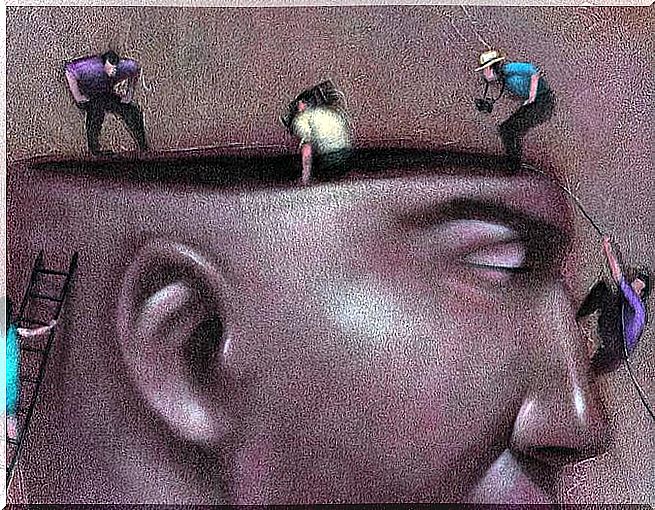Some People Lie Out Of Habit

Some people lie out of habit; in fact, statistically we all know almost one such person.
Usually, these people do not recognize that they have this habit since lying is socially condemned, but what is certain is that they have perfected it with a lot of practice.
In addition, internally, they understand that lying can be as valid a remedy as any other if it does not harm anyone and is not discovered.
Maybe we can now see it clearly in their game and not be fooled anymore because we have known them for a long time, but whatever the case, they can deceive the people they have just met, or who ‘they only see occasionally.
They know that the less detail they give, the better. They also know how to hide their faces so that their lies are not noticed, and are aware that one of their main allies is ambiguity.
On the other hand, it seems that those who make a habit of mixing fact and fiction end up getting lost in it themselves ; they get used to treating these two elements in the same way, since both have their place in their lives.
From the little lie to the compulsive lie
From an early age we were told that if we were to lie, “our noses would grow out like Pinocchio’s”, and that it is a very big sin not to tell the truth.
Often, growing up, we say to ourselves that a little lie, “it doesn’t hurt anyone”, and it is then that little by little our definition of truth is subtly altered.
In this evolution, there are people who manage to exceed the limits that one could consider as “normal” and who then become uncontrolled liars.
Many questions then arise: are they lying for a specific purpose? Do they realize that they are lying? Are they aware of the suffering they cause in others?
Unfortunately, in most cases, no. And the worst part is that if we try to help them, they reject us, or build an even bigger lie.

Pathological lies: from cinema to real life
Few scientific studies are able to explain the reasons why a person suffers from mythomania *.
The staging on the big screen is numerous; we think for example here of Taxi Driver, where Robert de Niro plays a young taxi driver who writes a letter to his parents to tell them that in reality, he works for the secret service of the government and that he is engaged.
Another story which is not fictional but very real is that of Tania Head (whose real name is Alicia Esteve), a young Barcelona girl who said that on September 11, 2001, she was on the 78th floor of the South Tower of the World Trade Center just as it exploded.
She showed her the alleged injuries caused by the attack, and even recounted the facts in great detail. In 2007, the New York Times revealed that it was in fact a lie, and later Spanish broadcaster Cuatro issued a document relating to the case titled “11-S, I made it all up” .
No one has yet been able to determine what reasons made this girl lie: some say that she wanted to become famous, and others that for her, the lie is not so different from the truth.
How do you know if someone is lying pathologically?
Beyond the cases staged on the big screen or that the media discover, what is certain is that one can quite be faced with a mythomaniac * without even realizing it.
How then can we realize that someone is lying to us “brazenly”? Maybe at first it will be difficult and we will need to see some strange information or information that does not “fit” the story to stop believing this person.
Realize that a pathological liar has no control over what he says or the effects his lies may have on others.
Lies are pervasive, disproportionate, persistent, and most of them are also spontaneous and unpredictable.
For example, we can identify someone who suffers from this disorder if they continually change the stories they tell, if they change their minds about what they have said in the past or if they exaggerate excessively. (as is the case with the taxi driver / CIA secret agent).
In turn, it is likely that he has a more spectacular version of past events, that he experiences a parallel reality and that he is not able to respond to contradictions by exposing errors in his memory as the reason.

Why should we be wary of pathological lies? Because it is based on the lack of control of the one who formulates it.
A myth addict * may have problems or abnormalities in the brain and central nervous system.
This does not “excuse” anything and that is not why he should be allowed to continue lying, but it is a good way to understand what it is when you come across a fantastic story or fake.
First and foremost, we should pay attention to liars who ignore the other and see them the same way they see lying, namely as one more way to achieve their goals.
These liars are more dangerous than the mythomaniacs *. Why ? Because they are fully aware of what they are saying! Their lies help them get rich, grow and walk on others.
Lies are never good. Those who suffer from mythomania * are not “forgiven” for their disorder but still deserve our help: we must invite them to see a specialist and motivate them to follow an adequate treatment.
* Mythomania: tendency or pathological inclination to fabricate or transform reality by explaining or recounting a fact.









